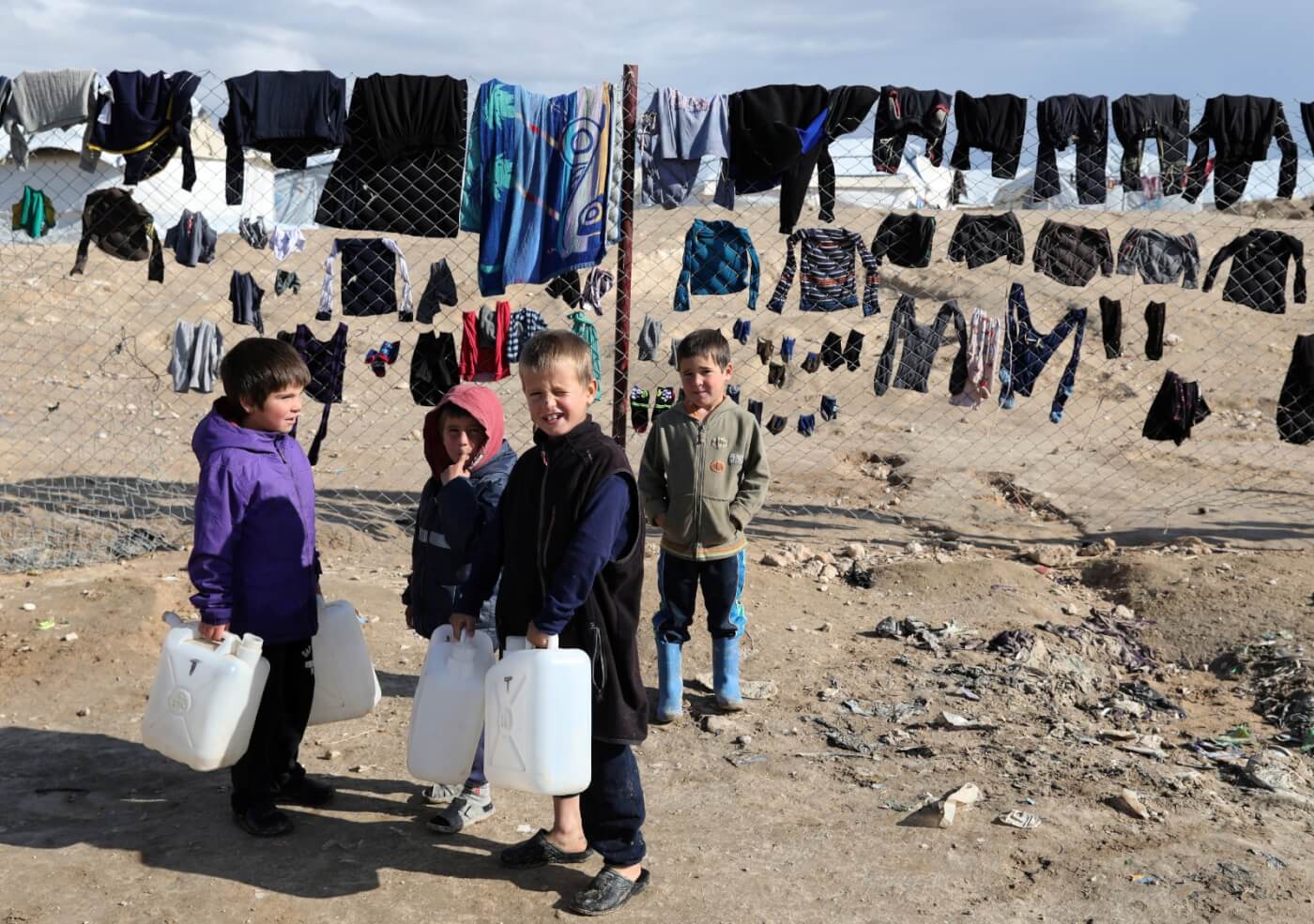At least five children were reportedly killed in the last week (5 November 2020) in north-west Syria, following a renewed wave of violence in the region after a global ceasefire was called this Spring.
From January to March 2020, 273 children were killed and 236 were injured due to violence in the north-west. The north-west enclave is home to over three million people, with 1.2 million children. The region was previously occupied by ISIS, but since their defeat has been a rebel stronghold.
On 4 November 2020, the Syrian government shelled the last rebel enclave in the area, which killed at least seven people, including four children. One child was only four years old, and on her way to school when she was killed. The previous week, on 26 October 2020, an airstrike in the north of Idlib led to 75 deaths and a further 135 injuries. The airstrike took place in an area that is densely populated as it is close to the Syrian-Turkish border, and does not normally see active conflict. Medecins Sans Frontieres (MSF), who co-manage hospital facilities in the area, reported receiving mass casualties, many in need of surgery.
“Hospitals in this specific area of Idlib governorate are not used to receiving people wounded by airstrikes… The fact that airstrikes are happening there is deeply concerning.” said Cristian Reynders, MSF Project Coordinator for north-west Syria.
Dangers in al-Hawl camp
In addition to the airstrikes, there have been an increasing number of deaths in al-Hawl camp. In a harrowing report for The Times, Anthony Lloyd described the dire situation on the ground, especially with the onset of the Covid-19 pandemic. Makeshift graves were built with nothing but a breezeblock to mark the resting place of women and children who died in the camp. The Kurdish-led administration is “underfunded and ill-equipped”, and has struggled to provide medical care in the camp with the growing risk of death from Covid-19.
After the fall of ISIS, the camp is resident to 68,000 people, 94% of which are women and children. Of this, 53% of whom are children under the age of 12. In the past month, nine people have been killed, including four young adults. The camp authorities say there has been between 30 and 35 murders in the camp so far this year, but they cannot be sure as some of the bodies are still hidden.
The $200 million anti-ISIS budget from the US has been, in part, an attempt to improve the situation in the camps, but conditions have in fact worsened over time. In January, Kurdish Red Crescent officials reported 517 deaths, most of whom were children. The UN reported by the summer that this figure had increased to 700 due to malnutrition and the spread of disease.
There are an estimated 10,000 foreign detainees in the camp, constituting 62 different nationalities, and many children born to European nationals who fled to Syria. European governments have been continuously called upon to repatriate their nationals and especially facilitate the return of children in the camps. Last week (26 October 2020), Albania repatriated four children and a woman from the camp. They were related to Albanian nationals, who had joined extremist groups and travelled to Syria to fight. The group travelled to Damascus, and were then taken to Lebanon to fly home to Albanian. Albanian Prime Minister Edi Rama met the returnees at dinner in Beirut prior to their return, organised through humanitarian organisations, military officials and the Albanian consul in the city. Rama is reportedly hoping to repatriate more nationals stuck in Syria in similar circumstances, as relatives back home claim there are at least 52 Albanian children in the camps. Rama also has plans to repatriate the Albanian nationals who fought for extremist groups, but have them face criminal prosecution in Albania.
#BringUKChildrenHome
IOHR’s #BringUKChildrenHome has focused on this issue in the UK. Last year, the UK government repatriated three orphan children, however most children in the camps are with their mothers.
Stripping their citizenship leads to a situation where children are abandoned, instead they should be brought home with a guardian, and given help to rehabilitate.
A new network, Families for Repatriation International (FRI) aims to bring foreign nationals back to their home countries, but be held in detention centres for their involvement in extremist fighting. They urge Western governments to take responsibility for their citizens in Syrian camps. In January, the Parliamentary Assembly of the Council of Europe also called for European countries to do so, but governments such as the UK have been resistant as it is an unpopular policy. Last year, the UK government stripped the citizenship of Shamima Begum, a London school girl who was groomed online and fled to Syria at age 15, rather than bring her and her son home to face justice under UK law. However, this was seen as a breach of international law as Begum could not claim Bengali citizenship through her mother’s heritage, and a Court of Appeals ruled in July that she should be allowed to come home to fight the decision to remove her citizenship. She is yet to return, and the Home Office is due to appeal the decision once more at the Supreme Court.
IOHR’s webinar held in September 2020, The Media and I.S. Returnees: Gender, Bias and Perceptions, discussed the role of the media in creating narratives around the individuals who left to join militant groups. Dr Vera Mironova, Research Fellow at Harvard University, said:
“Public opinion matters. The media informs public opinion and public opinion informs policy, it’s a loop. So there is a huge responsibility in how we cover these stories.”
Watch the webinar here:

